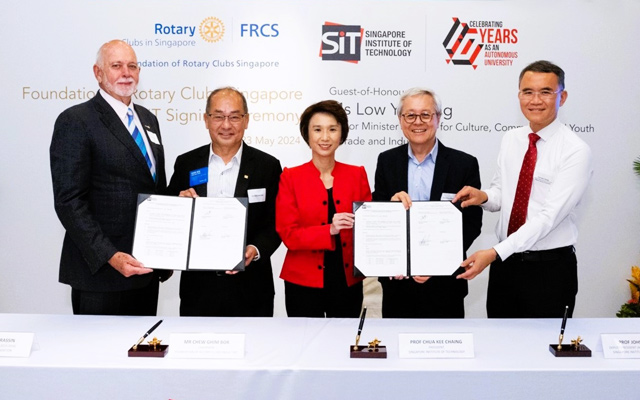In light of growing concerns about sustainable tourism, business event organisers and planners are evaluating the long-term effects their programmes have on host destinations and communities.
When Singapore hosted the 14,000-pax Rotary International Convention in May, the Foundation of Rotary Clubs Singapore (FRCS) pledged S$680,000 (US$530,043) over three years to a new Mangrove Conservatory set up by the Singapore Institute of Technology (SIT).

The Conservatory will focus on preserving genetically diverse mangroves and reintroducing lost species, serving as a hub for knowledge, innovation and test-bedding efforts.
For example, SIT staff and students will conduct experiments and simulations to identify mangroves that can help Singapore and the region address global warming and rising sea levels, increase biodiversity and maximise carbon sequestration. The facility will also be open to the public, and SIT will also collaborate with Rotary Clubs to engage the community, particularly the youth.
“The establishment of the Conservatory is a huge opportunity for us to make a lasting impact on the world and community around us, by helping to mitigate effects of climate change and maximise carbon sequestration,” said Chew Ghim Bok, board of directors, Rotary International, and 2024 Rotary International Convention organising committee chair.
In Malaysia, Sarawak is the first state to focus on legacy impact as a sustainable method of measuring the value of business events.
Books Build Legacy is a CSR programme by Business Events Sarawak (BESarawak) to enhance educational opportunities for rural communities. It partners with local, national and international associations and organisations so that rural children have access to resources to succeed academically and beyond.
“Since the launch of Books Build Legacy in 2022, we have collected 15,000 books. We’ve drawn support not just from business event planners, but also organisations beyond our usual network and members of the public,” said Amelia Roziman, CEO of BESarawak.
“This transforms the CSR into a cross-industry partnership programme that is easily adopted, adaptable to any event, and guarantees a strong impact on the rural community.”
She cited the Singapore Association for Continuing Education (SACE) team-building and retreat in Miri and Mulu this March.
Inspired by tribal principles of unity, the 39-pax SACE group donated more than 200 books to Batu Bungan National School, reaffirming its mission to empower communities and shape a more promising future for all.





















